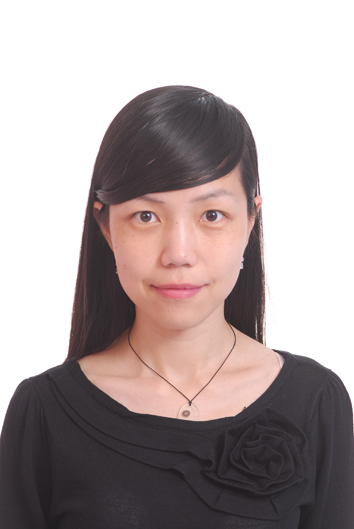教育经历:
2001-2006, 理学博士, 分子遗传学, 杜克大学
1996-2000, 理学学士, 细胞遗传, 我校
工作经历:
2023-今,副院长(本科教学),bat365中文官方网站
2020-今,长聘副教授/研究员,bat365中文官方网站
2019-今,研究员,北大-清华生命科学联合中心 (CLS)
2013-2019,助理教授/研究员,bat365中文官方网站
2013-2018,青年学者,北大-清华生命科学联合中心 (CLS)
2011-2012,副研究员,病理学系, 斯坦福大学
2006-2011,博士后,病理学系,斯坦福大学社会服务工作:
2024, 北京市青少年创新学院海淀分院学术委员会委员荣誉奖励:
2023, bat365中文官方网站最受欢迎教师奖
2023, 我校教学优秀奖
2022, 教育部第二届基础学科拔尖学生培养计划2.0优秀教师奖
2022, 我校本科生科研训练优秀指导教师奖
2021, 第三届神经细胞生物学青年前沿论坛特邀报告人奖
2019, 入选 Journal of Cell Biology 杂志青年顾问委员会
2016, bat365中文官方网站最受欢迎教师奖
2015, 我校青年教师教学基本功比赛二等奖
2015, 我校教学优秀奖
2006, 斯坦福大学医学院 院长博士后奖学金, 美国
2005, 基石研讨会(Keystone Symposium) 摘要奖, 美国
2002-2006, 霍华德·休斯医学研究所(HHMI) 博士生奖学金, 美国学术任职:
2020-今,中国神经学会发育与再生分会委员
2016-今,中国细胞生物学学会青年工作委员会委员
杂志任职:
2019-今,Journal of Cell Biology 杂志青年顾问委员会委员 (Early Career Advisory Board member)评审任职:
杂志评审:Developmental Cell; Science Advances; Nature Communications; Elife; Journal of Cell Biology; Cell Reports; PLOS Genetics; Development; JGG会议发言与组织:
会议组织:EMBO Workshop - Molecular and Developmental Biology of Drosophila (2022; 2024; 2026)杂志编辑:
eLife 杂志,编委 (Reviewing Editor) /
PLOS Genetics 杂志,编委 (Associate Editor) /
Journal of Genetics and Genomics 杂志,编委 (Editor) /
Developmental Biology 杂志,特邀编辑 (Guest Editor)
执教课程:
本科生,遗传学(英文版),主讲,我校,春季学期
本科生,生命科学前沿文献讨论,主讲,我校,春/秋季学期
本科生,科研规范与毕业论文,主讲,我校,秋季学期
本科生,细胞遗传发育前沿,讲课,我校,秋季学期
研究生,CLS项目神经生物学,讲课,我校,秋季学期
研究生,CLS项目遗传学,讲课,我校,秋季学期
研究生,PTN项目发育生物学,讲课,我校,春季学期
大脑是我们人体内最为复杂的器官。作为我们神经系统的高级中枢,人类大脑由上千亿个神经元、大致相同数量的非神经元细胞和数万亿个神经连接组成,从组装到运行都异常复杂和精妙。这些神经细胞不但数量庞大、种类繁多,还需在合适的时间和地点产生,才可能建立正确的神经连接,进而支持我们诸如思维、认知、学习、语言等高级神经活动。大脑发育异常可能导致儿童脑瘤、小脑症、自闭症等诸多神经发育疾病。深入解析神经发育的分子调控机理是防治相关神经发育疾病的基础和关键。
课题组通过将全脑亚细胞结构长时程活体动态成像技术与果蝇遗传学、小鼠遗传学、液-液相分离、细胞生物学、生物化学及多组学等手段相结合,现阶段特别感兴趣的科学问题包括:
1. 细胞记忆:脑发育过程中细胞如何在有丝分裂后及时“记住”或“遗忘”其细胞命运或身份?
2. 时间解码:神经发育的时程信号如何被及时、精确读取并转换成细胞命运决策事件?
3. 专属程序:大脑作为人体最复杂的器官,其发育过程是否有其独特的基因表达程序?这个专属程序如何运行,如何导致相关神经发育疾病的发生?
实验室更多信息请访问: http://yansonglab.org
*corresponding author; #contribute equally
1. Song Y.* (2022) It takes two to tango: The dance of cell fate specification. Developmental Biology, 490:125. (Editorial for a Special Issue on Transcriptional and epigenetic control of cell fate specification)
2. Liu X.#, Shen J.#, Xie L., Wei Z., Wong C., Li Y., Zheng X., Li P. and Song Y.* (2020) Mitotic implantation of a transcription factor via phase separation drives terminal neuronal differentiation. Developmental Cell, 52(3), 277-293; doi.org/10.1016/j.devcel.2019.11.019 [Featured Article].
Highlighted in Developmental Cell: Bonnay F. and Knoblich J.A.* (2020) Prospero Phase-Separating the Way to Neuronal Differentiation. Developmental Cell, 52(3), 251-252.
3. Li B.#, Wong C.#, Gao S.M., Zhang R., Sun R., Li Y. and Song Y.* (2018) The retromer complex safeguards against neural progenitor-derived tumorigenesis by regulating Notch receptor trafficking. Elife 2018;7;e38181 DOI: 10.7554/eLife.38181
Press release by Elife: https://elifesciences.org/for-the-press/3d24b574/body-s-own-bomb-squad-can-help-protect-against-brain-tumors
4. Xu K., Liu X., Wang Y., Wong C. and Song Y.* (2018) Temporospatial induction of homeodomain gene cut dictates natural lineage reprogramming. Elife 2018;7:e33934 DOI: 10.7554/eLife.33934
5. Jing M., Zhang P., Wang G., Jiang H., Mesik L., Feng J., Wang S., Looby J., Guagliardo N.A., Langma L.W., Lu J., Zuo Y., Talmage D.A., Role L.W., Barrett P.Q., Zhang L.I., Luo M., Song Y., Zhu J.* and Li Y.* (2018). A genetically-encoded fluorescent acetylcholine indicator for in vitro and in vivo studies. Nature Biotechnology 36:726–737
6. Liu K., Shen D., Shen J., Gao S.M., Li B., Wong C., Feng W. and Song Y.* (2017) The super elongation complex drives neural stem cell fate commitment. Developmental Cell, 40(6), 537-551 [Cover article].
Highlighted in Developmental Cell: Rossi A.M. and Desplan C.* (2017) Asymmetric Notch Amplification to Secure Stem Cell Identity. Developmental Cell, 40(6), 513-514.
Recommended by F1000Prime: https://f1000.com/prime/727458399
7. Liu K., Xu K. and Song Y.* (2019) Faster, Higher, Stronger: Timely and robust cell fate/identity commitment in stem cell lineages. Open Biology, 9: 180243. [Invited review]
8. Wu Y.C., Lee K.S., Song Y., Gehrke S., Lu B.* (2017) The bantam microRNA acts through Numb to exert cell growth control and feedback regulation of Notch in tumor-forming stem cells in the Drosophila brain. PLoS Genetics, 13(5):e1006785.
9. Lee K.S.#, Wu Z.#, Song Y., Mitra S.S., Feroze A.H., Cheshier S.H., Lu B.* (2013) Roles of PINK1, mTORC2, and mitochondria in preserving brain tumor-forming stem cells in a noncanonical Notch signaling pathway. Genes & Development, 27(24):2642-7 [Cover article]
10. Song Y. and Lu B.* (2012) Interaction of Notch signaling modulator Numb with α-Adaptin regulates endocytosis of Notch pathway components and cell fate determination of neural stem cells. Journal of Biological Chemistry, 287(21):17716-28.
11. Ouyang Y.#, Song Y.# and Lu B.* (2011) dp53 restrains ectopic neural stem cell formation in the Drosophila brain in a non-apoptotic mechanism involving Archipelago and Cyclin E. PLoS ONE, 6(11):e28098 (# contribute equally).
12. Song Y. and Lu B.* (2011) Regulation of cell growth by Notch signaling and its differential requirement in normal vs. tumor-forming stem cells in Drosophila. Genes & Development, 25(24):2644-2658.
13. Yu L., Song Y. and Wharton R.P.* (2010) E(nos)/CG4699 required for nanos function in the female germ line of Drosophila. Genesis, 48(3):161-70. [Cover article]
14. Song Y., Fee L., Lee T. and Wharton R.P.* (2007) The molecular chaperone Hsp90 is required for mRNA localization in Drosophila melanogaster embryos. Genetics, 176(4):2213-22.
 下载Firefox
下载Firefox
 下载Firefox
下载Firefox





 下载Firefox
下载Firefox